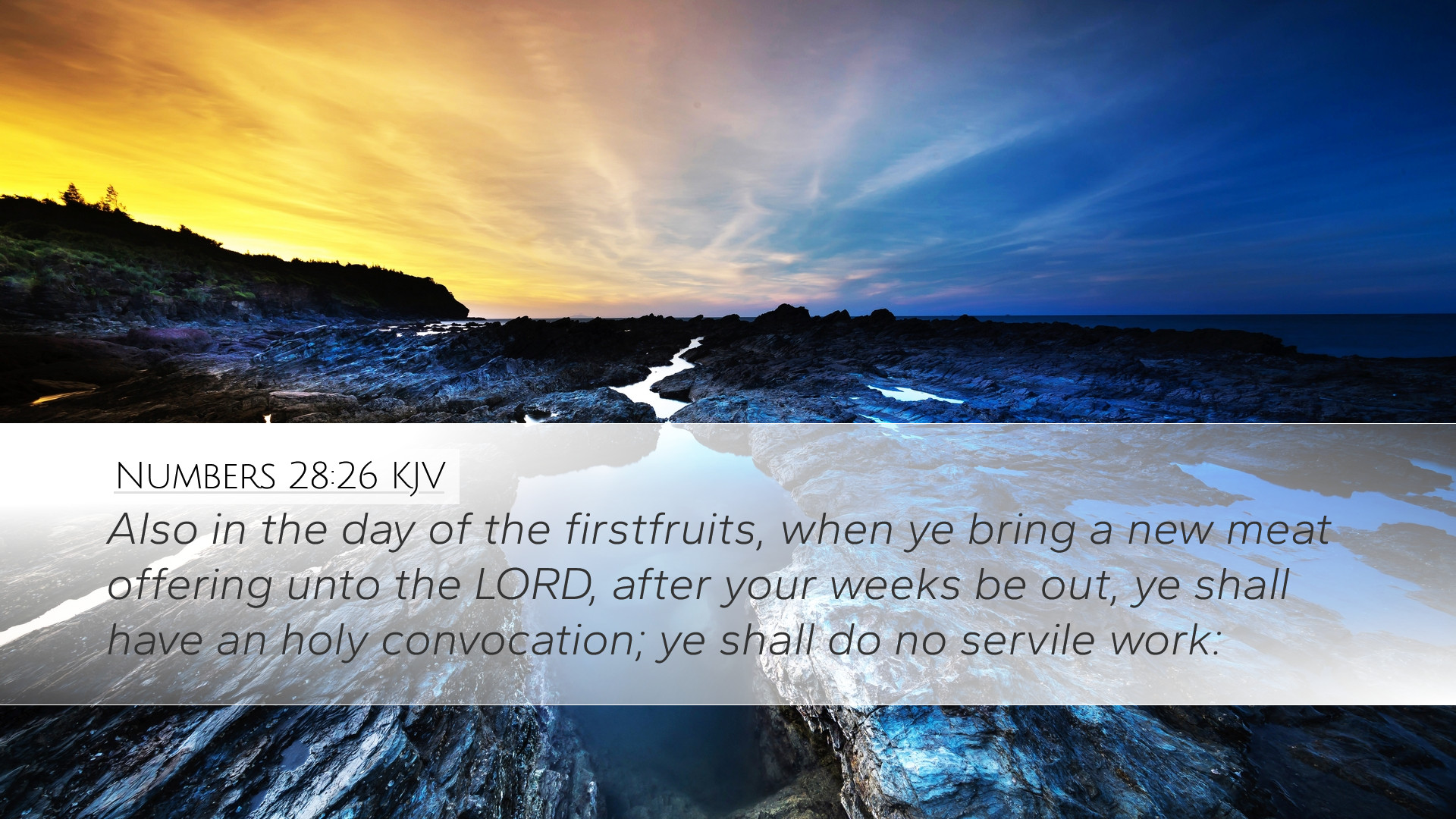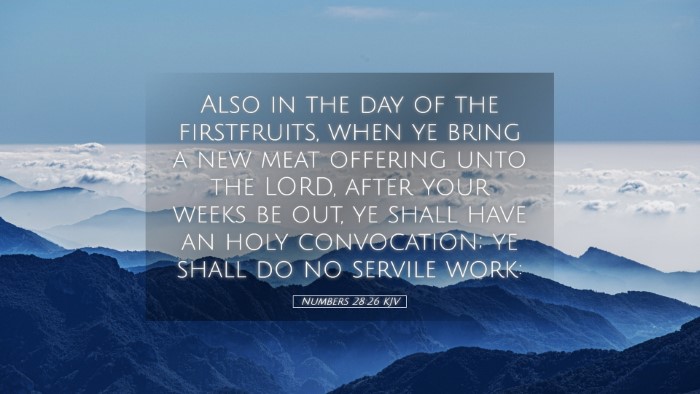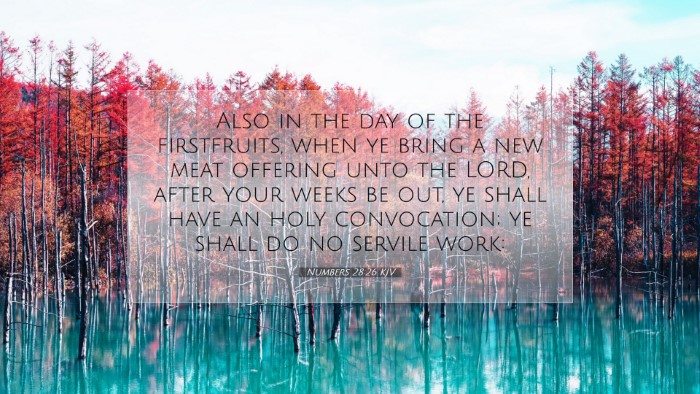Commentary on Numbers 28:26
Verse Reference: Numbers 28:26 - "Also in the day of the firstfruits, when ye bring a new meat offering unto the LORD, after your weeks be out, ye shall have an holy convocation; ye shall do no servile work."
Introduction
The verse in Numbers 28:26 is significant within the context of Israel’s worship and offerings to God. It is part of the divine instructions regarding the regular offerings and festivities associated with the agriculture of Israel. The complexities and nuances of this passage reflect profound theological insights into worship, holiness, community, and God's provision.
Understanding the Context
The book of Numbers lays out the laws and regulations required by God for His people, particularly concerning the sacrificial system and religious observances. This particular verse refers to the Feast of Weeks (Shavuot), a celebration that occurs fifty days after Passover and marks the beginning of the grain harvest.
According to Matthew Henry, this feast is not only agricultural but also deeply spiritual, commemorating God's provision and the giving of the Law on Sinai. This contextual understanding emphasizes that worship in Israel was not solely ritualistic but rooted in their history and covenant relationship with God.
Elements of the Verse
-
Firstfruits:
The concept of firstfruits reflects gratitude toward God for His bounty. As noted by Albert Barnes, the firstfruits belong to the Lord, symbolizing not only material giving but an acknowledgment of God’s sovereignty in providing for His people.
-
New Meat Offering:
Bringing a new meat offering denotes the fresh produce of the harvest. Adam Clarke points out that this offering represents the community's faith in God’s ongoing provision. Meat offerings involved grain, which underscores the agricultural basis of Israel’s society and worship.
-
Holy Convocation:
A holy convocation is a sacred assembly of the people, indicating the communal aspect of worship. Matthew Henry emphasizes the need for unity in worship practices, as these gatherings fortify the community’s relationship with God. This is a time for reflecting on God’s goodness as a collective.
-
No Servile Work:
The mandate to refrain from servile work during the festivities highlights the importance of spiritual reflection over secular labor. Albert Barnes notes that such prohibitions serve to redirect focus from the earthly to the divine, fostering an environment conducive to worship and gratitude.
Theological Implications
This verse carries rich theological significance. The act of giving firstfruits translates into worship, confirming God’s rightful claim over the harvest and, by extension, all possessions. By placing worship demands above ordinary work, the Israelites are instructed to prioritize their relationship with God over daily obligations.
As Adam Clarke articulates, the celebratory nature of the Feast of Weeks is rooted in both joy and reverence. This balance is critical for leaders and scholars to communicate, emphasizing that worship should both reflect our gratitude for God's provision and establish a rhythm of rest in our hectic lives.
Application for Today
In contemporary application, Numbers 28:26 invites modern believers to reflect on the idea of giving and worship in their lives. As pastors and theologians engage their congregations, they might prompt discussions around how to prioritize worship amidst busy schedules, ensuring that interactions with God remain vital and central to community life.
-
Celebration of Provision:
Encouraging congregants to regularly celebrate God's provision in personal and community contexts strengthens faith and encourages gratitude.
-
Community Worship:
The idea of a holy convocation today might be seen in church activities that foster fellowship, unity, and collective worship experiences.
-
Rest and Worship:
Modern believers should consider the balance of work and worship, creating space for rest and reflection that honors God amidst their busyness.
Conclusion
Numbers 28:26 serves as a reminder of the intricate relationship between God’s people and their worship. The instructions provided by God convey His desire for a community that acknowledges His sovereignty, expresses gratitude for His blessings, and engages in worship that is both communal and joyful. As we continue to explore and apply these principles, churches can foster enriched spiritual lives rooted in a deeper understanding of God’s expectations and grace.


